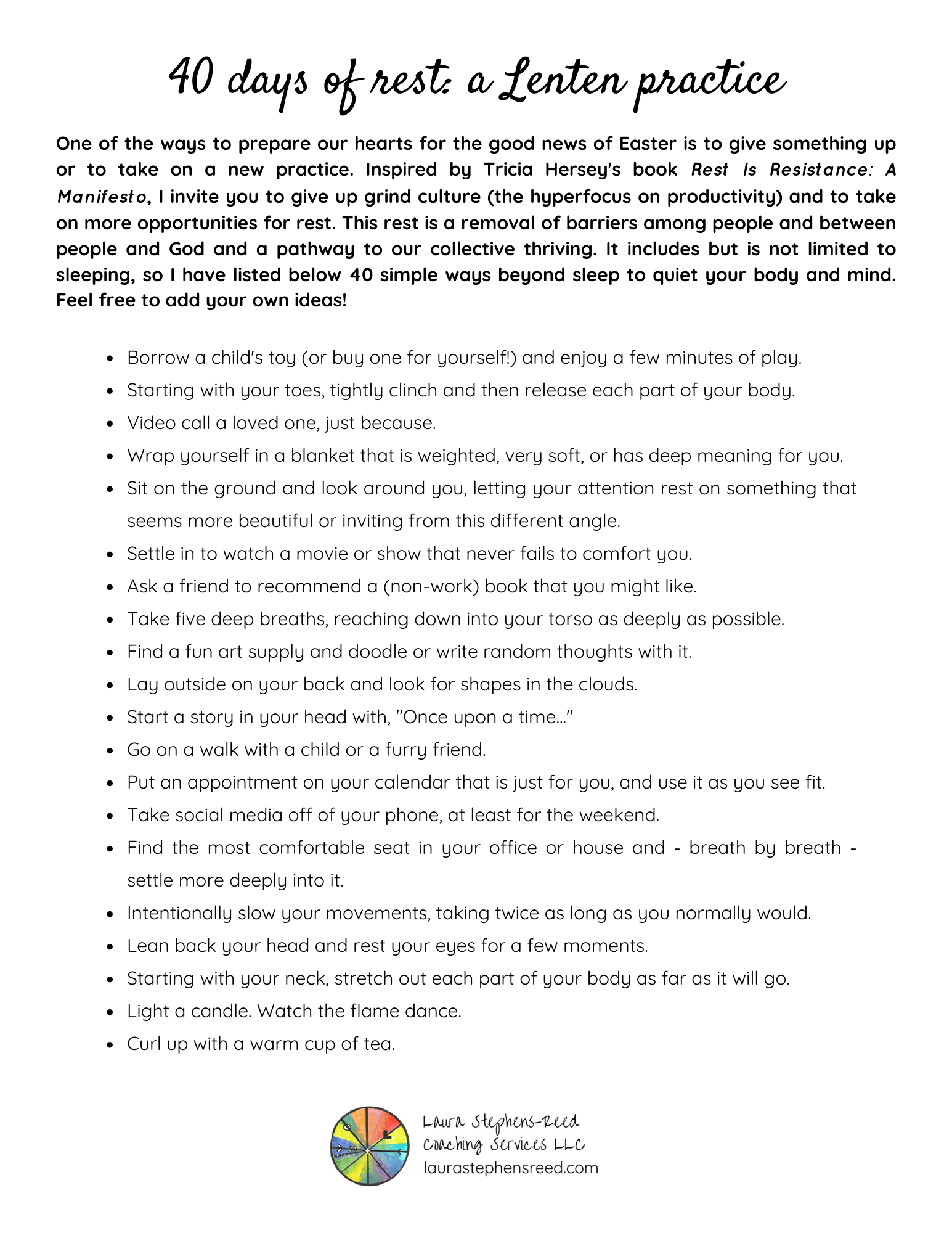Over the past six months I have worked with several congregations and groups of ministers, and I’ve found it absolutely essential that participants process their experiences during the pandemic. Otherwise there is an isolating, suffocating stuckness, a desire to get back quickly to whatever is familiar instead of moving forward faithfully as individuals and collectives. Here's where I believe we need to spend some time during our regathering:
We need to break the ice. As I mentioned last week, in some ways we are semi-strangers to one another. For this reason, we won't be able to go deep if we don't have some sense of safety first. Play is one way to create that, and I suggested a few activities designed to take power back from the pandemic's hold over us.
We need to slow down. The temptation is there to jump right back into all the programming our churches had in the Before, when so many people were constantly on the go. School will start in the next month or two, so we need to gear up Sunday School for all ages! And weekday Bible study! And have a fall kickoff! And…and…and. Instead, we need to add things back in layers, after taking a few deep breaths and considering what we’d be gaining and sacrificing by re-starting each ministry.
We need to lament. There's no denying we’ve all lost a lot: people we care about, jobs, routines, sleep, a sense of security, time in community, places we frequented, and much more. Milestones passed without full acknowledgment. Events we long anticipated were cancelled. It’s important to name these losses and offer them up to God.
We need to express gratitude. Without denying the difficulty of the pandemic, there are some surprising graces for which we can give thanks. We’ve learned new things. We’ve shifted or broadened our perspectives. We’ve received notes and calls and porch drop-offs. And if nothing else, we’re still here, and that in itself is worth a party. Grief and gratitude are both prayerful, faithful acts.
We need to explore how we've changed as individuals. We are not the people we were in early 2020. Some of those differences are minor or temporary. Others go to the core of who we are and how we show up in the world, making us fundamentally new people in positive and challenging ways.
We need to think about what those changes mean for how we are community to one another. In some churches, relatively surface interactions were the norm. Now that we all need to re-introduce ourselves, we can go deeper. Since we've had a shared experience of difficulty (even though the intensity has covered the range), we can have a shared vulnerability in naming what that difficulty has done to and for us. Out of that willingness to be real, our relationships can grow stronger, and we can look at the gifts and needs of our congregations and contexts afresh. We’ll then be able more effectively to live the love of Christ for one another and the world.
But what does all of this good work look like? Some can be done during worship, with leaders helping us make sense of all that’s happened, preaching about the courage in vulnerability, and creating ways for all people to participate in liturgy (e.g., naming grief and gratitude during prayer times or hanging a prayer wall for everyone to write on during or outside services). There's processing that can be accomplished individually through prayer stations set up around the themes named above. Christian education classes and small groups could be given discussion guides. And congregational conversations in ways that feel Covid-safe (and as emotionally safe as we can make them) can unearth a lot of what needs to be said.
My sense is that we will need some amount of all of the above means in the early going - and that the trauma will continue to pop up in surprising ways for a long time thereafter. But if we can just start talking in real ways with one another and God, we can begin to forge a faithful way forward together.
Photo by Morgane Le Breton on Unsplash.




















